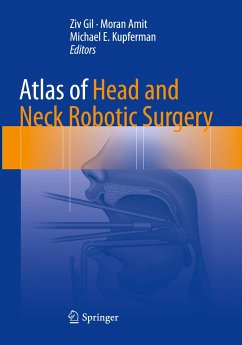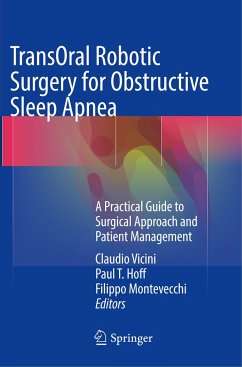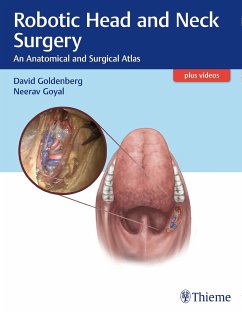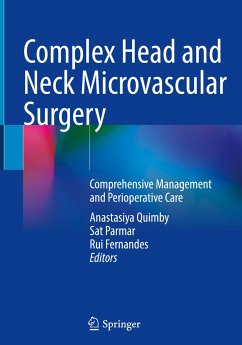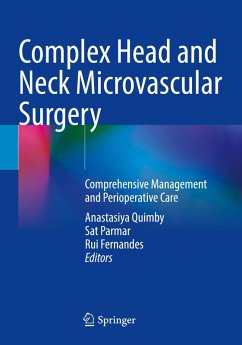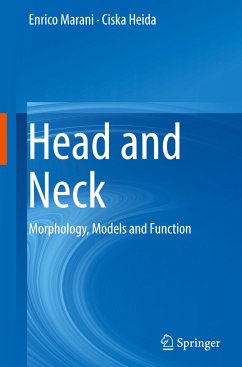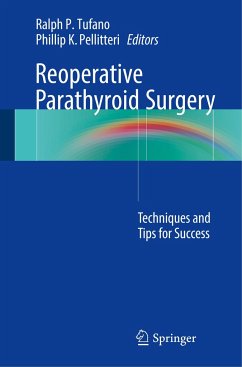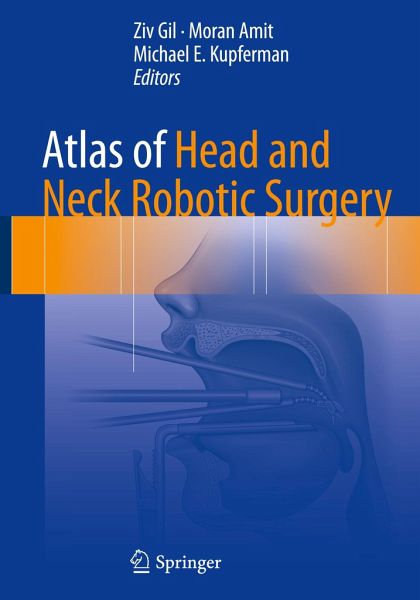
Atlas of Head and Neck Robotic Surgery

PAYBACK Punkte
57 °P sammeln!
This atlas offers precise, step-by-step descriptions of robotic surgical techniques in the fields of otolaryngology and head and neck surgery, with the aim of providing surgeons with a comprehensive guide. The coverage encompasses all current indications and the full range of robotic surgical approaches, including transoral, transaxillary, transmaxillary, and transcervical. Key clinical and technical issues and important aspects of surgical anatomy are highlighted, and advice is provided on ancillary topics such as postoperative care and robotic reconstructive surgery.Robotic surgery has prove...
This atlas offers precise, step-by-step descriptions of robotic surgical techniques in the fields of otolaryngology and head and neck surgery, with the aim of providing surgeons with a comprehensive guide. The coverage encompasses all current indications and the full range of robotic surgical approaches, including transoral, transaxillary, transmaxillary, and transcervical. Key clinical and technical issues and important aspects of surgical anatomy are highlighted, and advice is provided on ancillary topics such as postoperative care and robotic reconstructive surgery.
Robotic surgery has proved a significant addition to the armamentarium of tools in otolaryngology and head and neck surgery. It is now used in many centers as the workhorse for resection of oropharyngeal and laryngeal tumors, thyroid surgery, and base of tongue resection in patients with obstructive sleep apnea. The da Vinci robotic system, with its three-dimensional vision system, is also excellent forparapharyngeal, nasopharyngeal, and skull base resections. This superbly illustrated book, with accompanying online videos, will be ideal for residents in otolaryngology-head and neck surgery and skull base surgery who are working in a robotic cadaver lab and for specialists seeking to further improve their dissection techniques.
Robotic surgery has proved a significant addition to the armamentarium of tools in otolaryngology and head and neck surgery. It is now used in many centers as the workhorse for resection of oropharyngeal and laryngeal tumors, thyroid surgery, and base of tongue resection in patients with obstructive sleep apnea. The da Vinci robotic system, with its three-dimensional vision system, is also excellent forparapharyngeal, nasopharyngeal, and skull base resections. This superbly illustrated book, with accompanying online videos, will be ideal for residents in otolaryngology-head and neck surgery and skull base surgery who are working in a robotic cadaver lab and for specialists seeking to further improve their dissection techniques.



